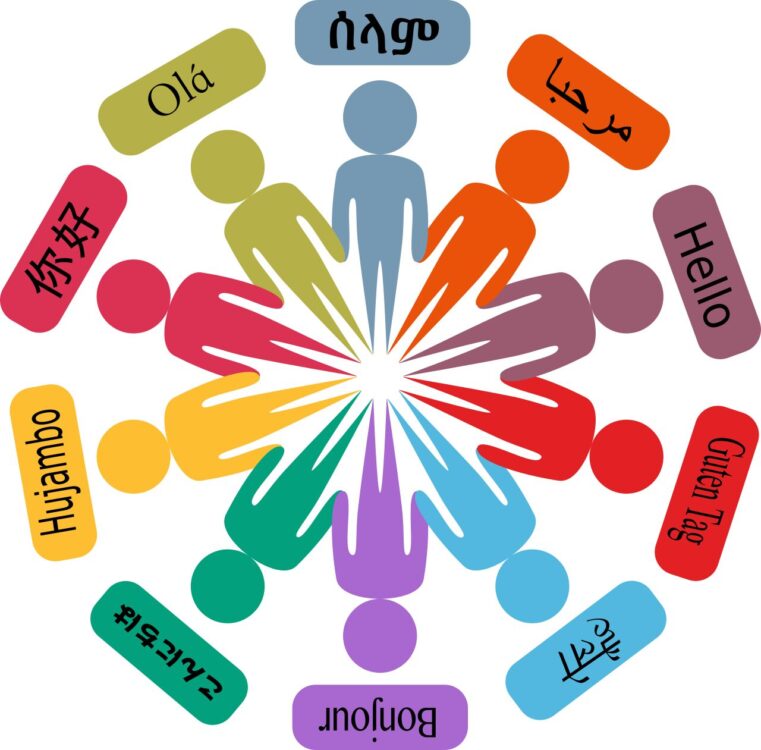Most people, at one point in their life or another, attempt to learn a second language. Whether they do so in high school or college to fulfill a foreign language requirement or well into adulthood as a fun challenge, it would be fair to say that a healthy portion of the population has forayed into bilingualism.
“Those who learn a foreign language by rote, as the vast majority of Americans do, can expect to lose a significant portion of their L2 vocabulary in as little as two weeks of disuse.”
Yet, in the anglosphere, it is often conceded — if not as the butt of a joke and a somber reminder of what may have been — that those who have attempted to learn a second language rarely continue their studies. The language they had chosen fades into but a sentence or two of broken syllables.
Conversely, those who successfully learn a second language might find themselves forgetting their native tongue, especially if they live in a country whose primary language differs from theirs. Many immigrants find themselves, without constant support and practice, forgetful of even the simplest vocabulary of their native country’s language.
In linguistics, this phenomenon is called language attrition. The first scenario, where the speaker forgets all or part of a non-native language, is called second-language attrition, or L2 attrition, where “L2” means one’s “second language” or, more broadly, any non-native language. The latter scenario, similarly, is referred to as first-language attrition, or L1 attrition, where one forgets all or part of their first language or native tongue.
“It is remarkable how something so instrumental to one’s identity as one’s native tongue can be so fragile, so transient as to simply fade from existence once displaced by another language, assuming one adopts another at all.”
Most people in English-speaking countries are required to study a foreign language in secondary school. In the United States, the principal language of choice for obligatory education is usually Spanish. This choice is pragmatic; being a European language of Latin orthography, as well as being the second most spoken language in the U.S., Spanish is reasonably easy to learn, neither requiring one to learn another writing system nor an unfamiliar phonetic system. It is also the language most likely, in the U.S., to be directly utilized by one who learns it.
However, second languages tend to be fleeting without constant practice, which the vast majority of American students fail to do once they graduate. As studies show, who learn a foreign language by rote, as the vast majority of Americans do, can expect to lose a significant portion of their L2 vocabulary in as little as two weeks of disuse. The sole exception to this rule appears to be concrete cognates, or, in other words, words that refer to physical objects and whose spelling or pronunciation are similar to one’s first language.
While unfortunate, L2 attrition is common, if not expected. L1 attrition is understudied and often leads to crises of identity in those who forget their native tongue. Nevertheless, the root cause is the same: a lack of practice. Moreover, L1 attrition is also complicated by the process of learning the second language.
There are several working theories for the process behind L1 attrition. Most boil down to a combination of vocabulary decay and the mental rewiring required of L2 acquisition overwriting the existing mental lexemes of the L1 language, lexemes being the fundamental units of information in languages, generally forming simple words.
Thus, when one immerses themselves in a non-native language environment (e.g. immigrating to a new country), they are likely cut off from any speakers of their first language, causing the aforementioned decay of their vocabulary. A single year of first-language disuse can see a 20% or greater decrease in one’s working vocabulary. The process of learning the second language additionally complicates matters and possibly accelerates this decay.
This loss of proficiency in one’s first language can cause further feelings of isolation, as if separated from their background and culture. Failure to fully adopt a second language before experiencing L1 attrition may also leave one linguistically stunted. That is to say, it is important to maintain the practice of one’s first language while learning a non-native language.
It is remarkable how something so instrumental to one’s identity as one’s native tongue can be so fragile, so transient as to simply fade from existence once displaced by another language, assuming one adopts another at all. Alas, c’est la vie.
Image courtesy of Openclipart



